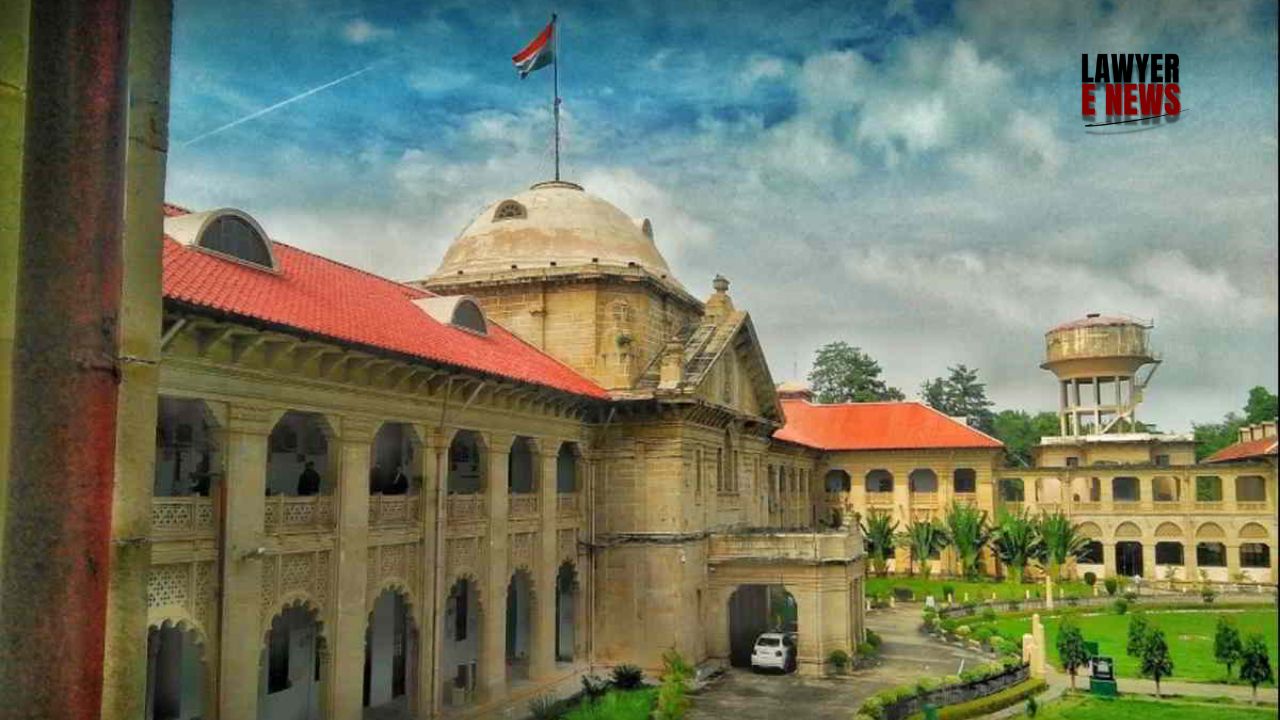-
by Admin
15 February 2026 5:35 AM



On September 24, 2024, the Allahabad High Court (Lucknow Bench) in Ram Shiromani Pandey & Another v. Manoj Tiwari @ Manoj Brahmchari & Another (MATTERS UNDER ARTICLE 227 No. 4278 of 2024) set aside the dismissal of a suit filed under Section 92 of the Code of Civil Procedure (CPC), 1908. The petitioners sought the declaration of a religious institution as a public trust. The Civil Judge had dismissed the suit for lack of a trust deed and other documents, but the High Court held that the Civil Judge lacked jurisdiction to hear such suits, which must be filed in the Principal Civil Court of original jurisdiction (District Court). The court granted the petitioners liberty to refile the suit in the District Court after obtaining necessary leave.
The petitioners, Ram Shiromani Pandey and another, filed a suit under Sections 91 and 92 of the CPC, seeking a declaration that "Sachcha Baba Ashram," located in Pratapgarh, is a religious public trust. The petitioners claimed that the Ashram had been founded on land donated by their ancestor and that, after the Ashram fell into neglect, the first petitioner reconstructed a temple and appointed Manoj Tiwari as a salaried priest. They alleged that Tiwari had misused his position, constructing a personal residence and engaging in inappropriate activities.
The suit was dismissed by the Civil Judge at the admission stage due to the absence of a trust deed, lack of clarity on the identity of trustees, and failure to provide bylaws or rules governing the trust. The petitioners challenged the dismissal, contending that the suit was maintainable under Section 92 CPC and the Religious Endowments Act, 1863, and that the absence of a trust deed should not preclude the suit’s admission.
Jurisdiction to entertain suits under Section 92 CPC: The Civil Judge dismissed the suit without acknowledging that under Section 92 CPC and the Religious Endowments Act, such suits must be filed in the Principal Civil Court of original jurisdiction, i.e., the District Court, and not before a Civil Judge.
Absence of a trust deed: The lower court dismissed the suit for lack of a formal trust deed. The petitioners argued that a constructive trust can exist without formal documentation, especially in the context of religious institutions.
Right to file suit under Section 92 CPC: The court had to determine whether the petitioners, as worshippers and descendants of the founder, had the right to file the suit, even without being formal trustees.
The court highlighted that Section 92 CPC, along with Section 2 of the Religious Endowments Act, mandates that suits involving public religious trusts can only be heard by the Principal Civil Court of original jurisdiction or a court empowered by the State Government. A Civil Judge does not qualify as such and, therefore, lacked the authority to dismiss the suit. Citing previous case law, including Gangadeen v. Kanhaiya Lal (AIR 1972 All 355), the court reaffirmed that only District Judges can hear suits of this nature.
The court noted that a public trust can be established without a formal trust deed, especially in religious contexts. Justice Subhash Vidyarthi emphasized, “The mere absence of a written document or entries is not conclusive proof of the non-existence of a trust. A valid trust may be created orally, and the absence of documentation should not be grounds for dismissal.” Thus, dismissing the suit based solely on the lack of a trust deed was erroneous.
The court reiterated that leave of the court is required to file suits under Section 92 CPC, and such leave is granted based on prima facie grounds, without adjudicating the merits of the case. The defendants do not have a right to be heard at this stage. The Civil Judge improperly entertained objections from the defendants before granting leave.
The High Court set aside the order of the Civil Judge, emphasizing that the trial court’s dismissal was beyond its jurisdiction and legally flawed. The court noted that:
Jurisdiction: The Civil Judge had no authority to hear the suit under Section 92 CPC or the Religious Endowments Act, 1863, as these cases must be filed in the District Court.
Constructive Trust: The court held that the absence of a trust deed or formal documentation is not sufficient grounds to dismiss a suit regarding a religious trust, especially when the property has been treated as endowed for religious purposes for many years.
Leave to File Suit: The court emphasized that the defendants had no right to raise objections at the admission stage, and the trial court’s consideration of those objections was improper.
The petitioners were granted liberty to file a fresh suit in the Principal Civil Court of original jurisdiction, i.e., the District Court of Pratapgarh, after obtaining leave. The court clarified that any observations made in this order would not affect the merits of the case.
The Allahabad High Court set aside the dismissal of the petitioners’ suit, ruling that the Civil Judge lacked jurisdiction to entertain the case under Section 92 CPC and the Religious Endowments Act. The court clarified that public religious trusts can be created without formal documentation, and the absence of a trust deed does not preclude a suit from being filed. The petitioners were granted liberty to refile the suit in the District Court.
Date of Decision: September 24, 2024
Ram Shiromani Pandey & Another v. Manoj Tiwari @ Manoj Brahmchari & Another
